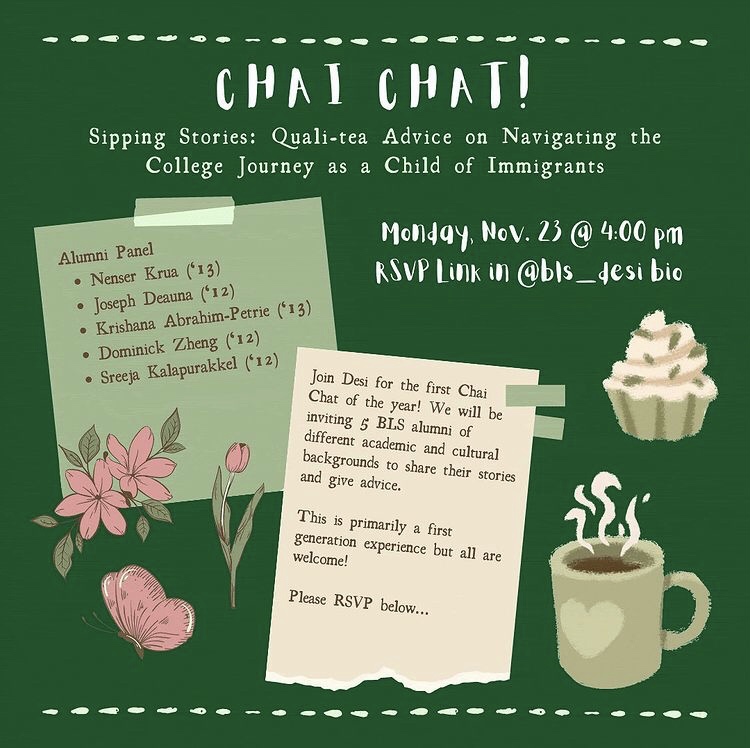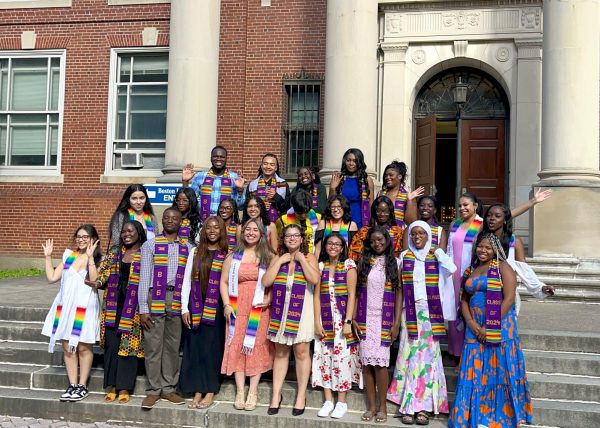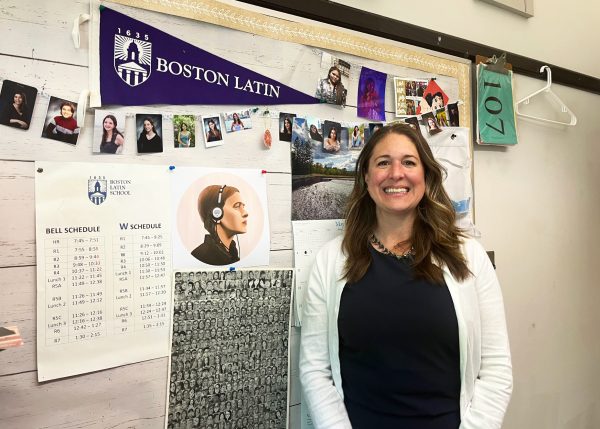BLS Desi Chai Chat Connects Alumni and Students
With college applications underway, Boston Latin School’s Desi connected alumni and students with a discussion on navigating the college process as people of color and children of immigrants on November 23.
Officially called “Sipping Stories: Quali-tea Advice on Navigating the College Journey as a Child of Immigrants,” the event brought in a panel of BLS alumni who were people of color, immigrants or children of immigrants. The purpose of the event was to provide a safe space for students from all backgrounds to discuss the difficulties of the college process.
After a short mindfulness session, the panelists introduced themselves and gave a brief explanation of their college application experiences. Attendees then asked for advice or questions about how the panelists’ identities shaped their journey in applying for colleges. When the event approached the end, the audience reflected on the session and Desi officers provided the attendees with the panelists’ contact information.
Attendee Bronte Buckingham (I) comments, “I can genuinely say that everybody in that meeting formed a meaningful connection with one another. It was a safe, intellectual and reflective space where people felt comfortable sharing their struggles and their passions.” She also found that the conversation left her with a better understanding that other people are going through unique experiences of varying difficulties.
As the Desi club members spoke about applying to college, it became clear that many of their parents, as immigrants, were unfamiliar with the college process because they had never gone through it. Punnya Kalapurakkel (I) and Claer Jestin (I), the presidents of Desi, felt that BLS students could benefit from hearing from alumni who had already gone through the process of applying for college while being children of immigrants.
Panelist Krishana Abrahim-Petrie (‘13) agreed with this and says, “I don’t remember an event that was tailored like this when I was at BLS and applying for college, so it was really nice to be able to share knowledge and learn from others about the difference in dynamics at BLS based on our class. Learning that there are others who have the same […] challenges as yourself is extremely useful in shaping our choices and experiences.”
While the panelists, officers and attendees all found the event itself went smoothly, there were some bumps in the road during planning. The officers had to schedule the event so that all five of the panelists could attend. As December is a busy month because of the holidays, they found that November would be a better time.
The most important thing for the event, however, was making sure that people would show up. The officers advertised the event in their classes and on the Daily Bulletin, reached out to the Schawbel College Resource Center and posted about it on the club’s social media platforms.
The event is part of a series of Desi Chai Chats that will continue into the school year. Each of the Chai Chats will create a conversational space about topics that are essential to the identity of being South Asian. Drinking chai represents bonding, chatter and the colloquial term of “spilling the tea” on important topics.
In the future, Desi plans on hosting events focused on topics such as “The Caste System and Anti-Blackness in South Asia,” “Intergenerational Trauma and Mental Health” and “Being Queer and South Asian.” They are also planning to do spotlights on lesser-known South Asian countries for Asian American and Pacific Islander Heritage Month.
Jestin adds that while BLS Desi is a cultural club, they do not cater it to only people of South Asian identity; rather, it has the greatest impact when people from different backgrounds sit in and learn as well. “Everyone can benefit from attending. There’s no way we are going to build a more inclusive school environment without understanding what the experiences of others look like.”






